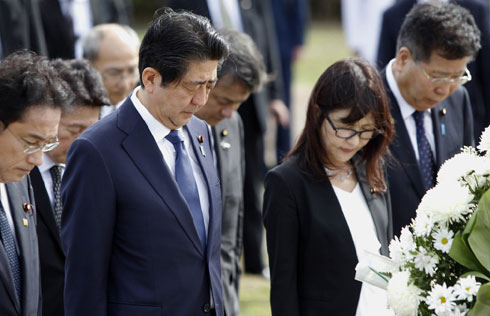Energy reserve diversity brings opportunities: BP CEO
HOUSTON - Growing diversity of energy reserves worldwide, while greatly increasing supplies, poses new challenges to the energy industry, top officer of British oil giant BP said Wednesday.
"The opportunities are plentiful, but they are also complex and difficult," BP CEO Bob Dudley said in a keynote speech at the annual IHS CERAWEEK energy conference in Houston.
"There has been a lot of change in where the supply is coming from," he noted.
The BP's Energy Outlook 2030 publication forecasts that nonfossil energy, including nuclear, hydro, biofuels, and other renewables, will grow faster as a group than any fossil fuel.
Nonfossil fuels start from a very low base and are expected to provide, on a combined basis, about a fifth of all energy in 2030, Dudley said.
"Gas will be the fastest growing fossil fuel at around two percent annually. It's clean, cheap, and increasingly available." he said.
"Oil will grow more slowly, at less than one percent per year. But that still means the world will need around 16 million barrels a day more in 2030 than today... that increase alone is nearly the combined daily 2011 production of Russia, Canada, and the United Arab Emirates," he said.
Thanks to new frontiers such as shale and the deepwater, "our industry is now producing an enormous amount of previously unreachable oil and gas," he noted.
However, he said, the diversity of supplies comes at a price. "Many of the new supplies are in places that are hard to get at: shale oil and gas, tight oil and gas, heavy oil, the deepwater -- and, in due course, the Arctic Circle."
"Physical and technological risks are not the only ones," Dudley said. "Other factors range from fiscal regimes and other policy-related issues, to geopolitical tensions and even the risk of terrorism."
Actually, the BP itself has experienced the risks of both drilling in and of terrorist attacks.
"We at BP were brutally reminded of that fact a few weeks ago, when four of our employees and colleagues from other companies were murdered in the terrorist attack on the In Amenas gas plant in Algeria," Dudley cited.
Besides, in New Orleans, Louisiana, the first phase of one of the largest environmental trials in U.S. history is underway. Three years after the devastating Deepwater Horizon oil rig explosion, the civil trial will determine the share of liability for companies involved.
Finger-pointing among oil rig operators BP, Halliburton, and Transocean continues.
The 2010 blowout of the BP's Macondo well in the Gulf of Mexico triggered an explosion that killed 11 rig workers and unleashed the worst oil spill in US history.
"The new opportunities bring new challenges, and we need constantly to develop our technology, capacity and risk management," Dudley said.

















